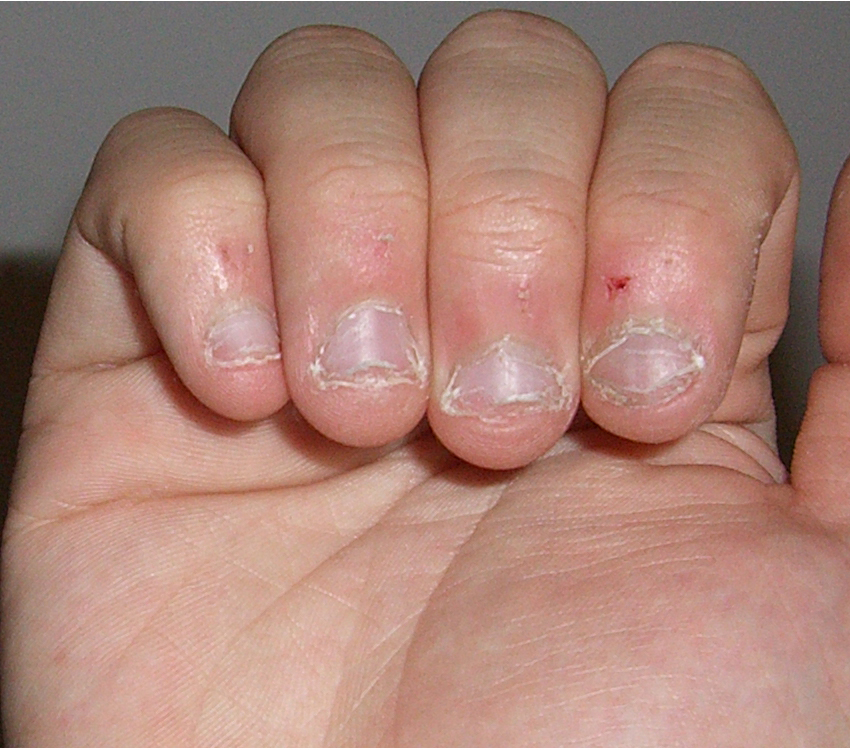Nail Biting: Why, and how to Stop?
Why do I bite my nails?
Nail biting, also known as onychophagia, is a common habit that can develop for various reasons. Some of the common reasons why people bite their nails include:
- Stress and Anxiety: Nail biting is often a coping mechanism for stress, anxiety, boredom, or frustration. It can provide a sense of relief or distraction from negative emotions.
- Nervous Habit: Nail biting can become a habit that is done unconsciously, especially in situations where a person is deep in thought or feeling nervous.
- Boredom or Inactivity: Nail biting can occur when a person is bored or not engaged in an activity, providing a way to pass the time or relieve boredom.
- Perfectionism: Some people may bite their nails as a result of perfectionist tendencies, feeling the need to “fix” or “smooth out” their nails.
- Imitation: Children may learn to bite their nails by observing others, such as parents or siblings, who have the habit.
- Genetics: There may be a genetic component to nail biting, as it can run in families.
Nail biting can have negative consequences, including damage to the nails and surrounding skin, increased risk of infections, and potential dental issues if the habit causes teeth to shift or break. If you’re looking to stop nail biting, it may be helpful to identify the triggers that lead to the habit and find alternative ways to cope with stress or boredom, such as practicing relaxation techniques, keeping your hands busy with fidget toys or stress balls, or seeking support from a therapist or counselor if anxiety or stress is a contributing factor.
How do I stop biting my nails?
Stopping nail biting can be challenging, but with persistence and the right strategies, it is possible to break the habit. Here are some tips to help you stop biting your nails:
- Identify Triggers: Pay attention to when and why you bite your nails. Is it when you’re stressed, bored, or anxious? Identifying your triggers can help you develop alternative coping mechanisms.
- Keep Your Nails Trimmed: Short nails are less tempting to bite. Keep your nails trimmed and filed to reduce the urge to bite them.
- Use a Bitter-Tasting Nail Polish: Apply a special nail polish that has a bitter taste to deter you from biting your nails. These products are designed to taste unpleasant and can help you become more aware of the habit.
- Keep Your Hands Busy: Find alternative ways to keep your hands busy, such as playing with a stress ball, squeezing a fidget toy, or keeping a small object in your pocket to fidget with.
- Practice Relaxation Techniques: If stress or anxiety triggers your nail biting, practice relaxation techniques such as deep breathing, meditation, or yoga to help manage stress and reduce the urge to bite your nails.
- Use Visual Reminders: Place reminders around your environment to help you become more aware of your habit. For example, you can put a note on your desk or mirror reminding you to stop biting your nails.
- Reward Yourself: Set small goals for yourself, such as not biting your nails for a day or a week, and reward yourself for reaching these goals. This can help motivate you to continue your efforts.
- Seek Support: If you’re struggling to stop biting your nails on your own, consider seeking support from a therapist or counselor. They can help you develop strategies to break the habit and address any underlying issues that may be contributing to it.
Breaking the habit of nail biting may take time and effort, but with persistence and the right strategies, you can successfully stop biting your nails.




